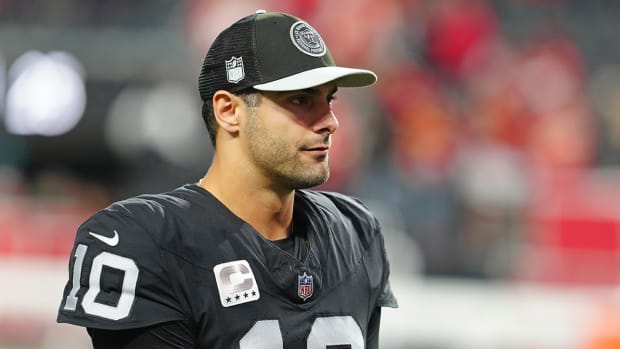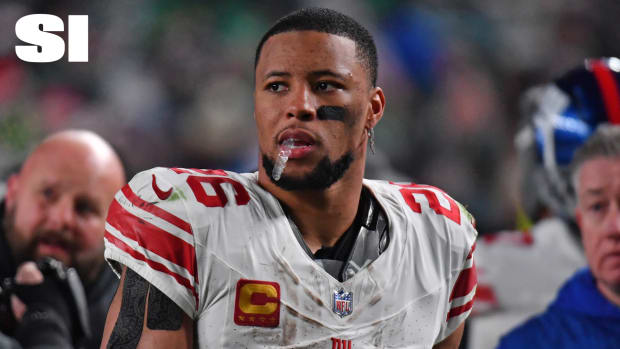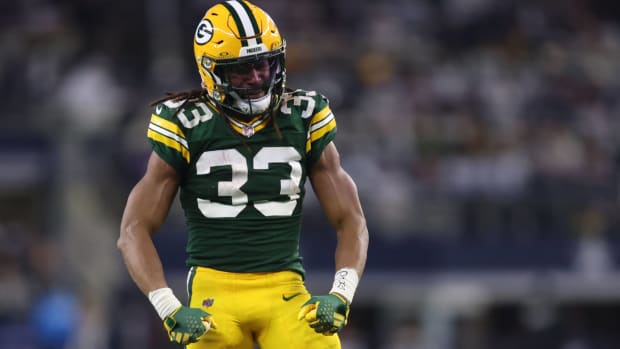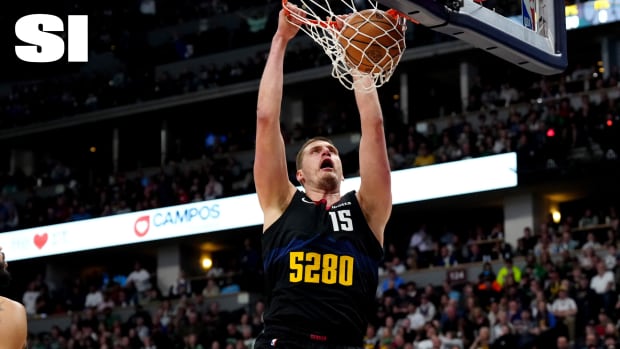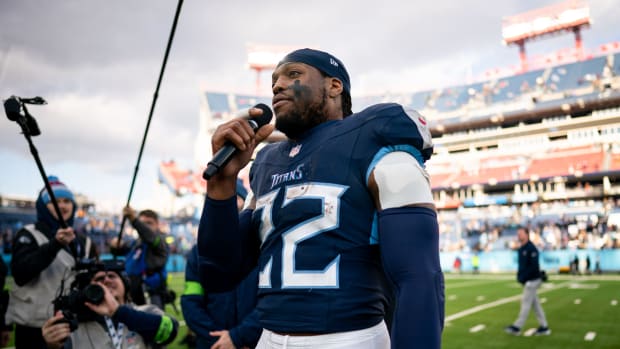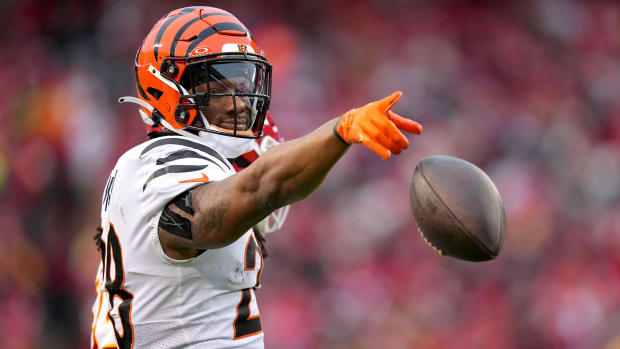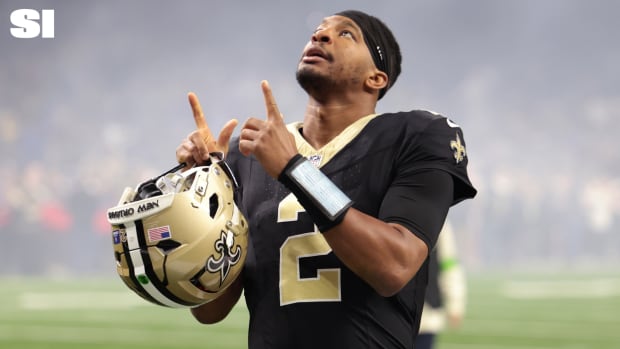Daily Cover: Will Sports Wave Goodbye to Handshakes?
In 1946, Jackie Robinson hit a three-run homer over the left fence and before he could step on the dish, teammate George Shuba was already shaking his hand.
It was the first recorded instance of a black player and a white player shaking hands on a modern professional baseball field. The photo stands as a reminder to treat all people equally.
Now with the coronavirus pandemic, Dr. Anthony Facci has said he doesn't think we should ever shake hands again but when it comes to sports, can we?
Kaitlin O'Toole is joined by SI's writer Steve Rushin discussing if sports will get rid of the handshake.
Read the Full Transcript Below:
Kaitlin O'Toole: In 1946, Jackie Robinson hit a three-run homer over the left fence, and before he could even step on the dish, teammate George Shuba was already shaking his hand. It was the first recorded incidents of a black player and white players shaking hands on a modern professional baseball field. The photo stands as a reminder to treat all people equal. Now, with the coronavirus pandemic, Dr. Anthony Faucci has said that he doesn't think we should ever shake hands again. But when it comes to sports, can we? Joining me now is SI's writer Steve Rushin. Steve, what role has the handshake played in sports.
Steve Rushin: It's pretty much played every role there is to play. It's been a gesture of peace. Hockey players fight each other on the ice, then shake hands afterwards. It's also been a gesture of hostility. The famous Celtics famously snubbed the Pistons in the NBA playoffs and didn't shake their hands after the game. The Pistons snub the Bulls with no handshake. Michael Jordan talked about that in the last dance. He snubbed Alonzo Mourning before a playoff game, refusing to shake his hands in the jump circle. So it's been used for good. It's been used for ill, it's been used as a as a way of literally joining hands. Jim Thorpe and Avery Brundage, who banned him from the from the Olympics, shook hands 50 years after the fact. And so, you know, players make handshake deals. They don't need a contract and that same hand that's extended is balled up in a fist later on the field of play. The handshake is then used to broker that peace. So it's been it's been used for every possible use you can think of. And, of course, it evolved into fist bumps and high fives and elbow daps and in every other thing, you can think of, but the handshake itself has stood for a couple of thousand years, so it's hard to imagine that it may go away.
Kaitlin O'Toole: I mean so many examples that you've just said right now that validate the handshake and the role it's played in sports. So I have to ask you, do you really think the sports world could wave goodbye to the handshake?
Steve Rushin: I don't think it's going to happen. I mean, if you've just tackled the fullback, what's the difference if you shake his hand afterwards in terms of passing on a virus? So much there's so much physical contact in most sports that I think in those sports it's it's unlikely to go away. Wll, people still shake hands at the net in tennis. A sport that actually uses a handshake grip to begin with. Possibly. I mean, I can see people sort of waving hello at the net after tennis matches. I don't see the handshake going away, say, among football players.
Kaitlin O'Toole: All right. Love your insight on this, Steve. Thanks so much for joining me. I appreciate it.
Steve Rushin: Thank you. My pleasure.

